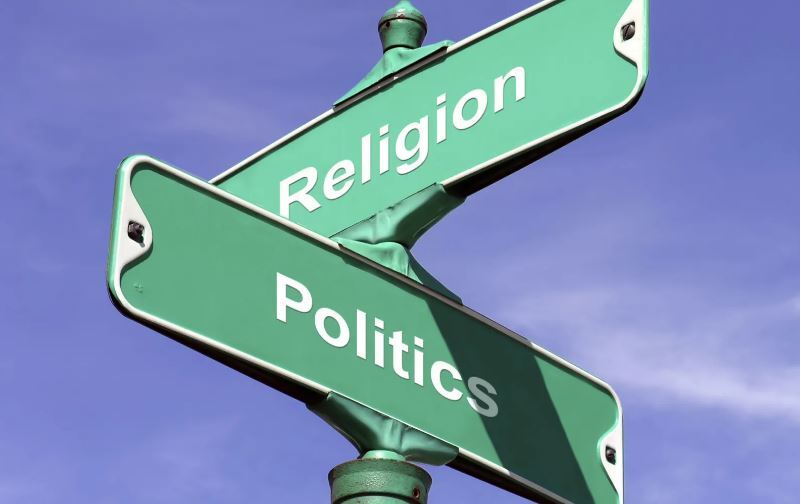The relation between religiosity and intelligence
The study of religiosity and intelligence explores the link between religiosity and intelligence or educational level by country and on the individual level. Religiosity and intelligence are both complex topics that include diverse variables, and the interactions among those variables are not always well understood. For instance, intelligence is often defined differently by different researchers; also, all scores from intelligence tests are only estimates of intelligence, because one cannot achieve concrete measurements of intelligence (as one would of mass or distance) due to the concept’s abstract nature.
Religiosity is also complex, in that it involves wide variations of interactions of religious beliefs, practices, behaviors, and affiliations, across a diverse array of cultures.
A meta-analysis and an updated analysis by the same research group have found a measurable negative correlation between intelligence quotient (IQ) and religiosity. The correlation was suggested to be a result of nonconformity, more cognitive and less intuitive thinking styles among the less religious, and less of a need for religion as a coping mechanism.
Some studies have shown a correlation between national average IQ and levels of atheism in society, although others have questioned whether any correlations are due to a complex range of social, economic, educational and historical factors, which interact with religion and IQ in different ways. Less developed and poorer countries tend to be more religious, perhaps because religions play a more active social, moral and cultural role in those countries.
One study suggests that intuitive thinking may be one out of many sources that affect levels of religiosity and that analytical thinking may be one out of many sources that affect disbelief. However, others who have reviewed studies on analytic thinking and nonbelievers suggest that analytical thinking does not imply better reflection on religious matters or disbelief.
A global study on educational attainment found that Jews, Christians, religiously unaffiliated persons, and Buddhists have, on average, higher levels of education than the global average. Numerous factors affect both educational attainment and religiosity.

Religiosity and intelligence | Intelligence
The definitions of intelligence are controversial since at least 70 definitions have been found among diverse fields of research. Some groups of psychologists have suggested the following definitions:
From “Mainstream Science on Intelligence” (1994), an op-ed statement in the Wall Street Journal signed by fifty-two researchers (out of 131 total invited to sign).
A very general mental capability that, among other things, involves the ability to reason, plan, solve problems, think abstractly, comprehend complex ideas, learn quickly and learn from experience. It is not merely book learning, a narrow academic skill, or test-taking smarts. Rather, it reflects a broader and deeper capability for comprehending our surroundings—”catching on,” “making sense” of things, or “figuring out” what to do.
From “Intelligence: Knowns and Unknowns” (1995), a report published by the Board of Scientific Affairs of the American Psychological Association:
Individuals differ from one another in their ability to understand complex ideas, to adapt effectively to the environment, to learn from experience, to engage in various forms of reasoning, to overcome obstacles by taking thought. Although these individual differences can be substantial, they are never entirely consistent: a given person’s intellectual performance will vary on different occasions, in different domains, as judged by different criteria. Concepts of “intelligence” are attempts to clarify and organize this complex set of phenomena. Although considerable clarity has been achieved in some areas, no such conceptualization has yet answered all the important questions, and none commands universal assent. Indeed, when two dozen prominent theorists were recently asked to define intelligence, they gave two dozen, somewhat different, definitions.
Intelligence is a property of the mind that encompasses many related abilities, such as the capacities to reason, to plan, to solve problems, to think abstractly, to comprehend ideas, to use language, and to learn. There are several ways to more specifically define intelligence. In some cases, intelligence may include traits such as creativity, personality, character, knowledge, or wisdom. However, some psychologists prefer not to include these traits in the definition of intelligence.
A widely researched index or classification of intelligence among scientists is intelligence quotient (IQ). IQ is a summary index, calculated by testing individuals’ abilities in a variety of tasks and producing a composite score to represent overall ability, e.g., Wechsler Adult Intelligence Scale. It is used to predict educational outcomes and other variables of interest.
Others have attempted to measure intelligence indirectly by looking at individuals’ or group’s educational attainment, although this risks bias from other demographic factors, such as age, income, gender and cultural background, all of which can affect educational attainment.
Dissatisfaction with traditional IQ tests has led to the development of alternative theories. In 1983, Howard Gardner proposed the theory of multiple intelligences, which broadens the conventional definition of intelligence, to include logical, linguistic, spatial, musical, kinesthetic, naturalist, intrapersonal and interpersonal intelligences. He chose not to include spiritual intelligence amongst his “intelligences” due to the challenge of codifying quantifiable scientific criteria, but suggested an “existential intelligence” as viable.
Religiosity and intelligence | Religiosity
The term religiosity refers to degrees of religious behavior, belief, or spirituality. The measurement of religiosity is hampered by the difficulties involved in defining what is meant by the term. Numerous studies have explored the different components of religiosity, with most finding some distinction between religious beliefs/doctrine, religious practice, and spirituality.
Studies can measure religious practice by counting attendance at religious services, religious beliefs/doctrine by asking a few doctrinal questions, and spirituality by asking respondents about their sense of oneness with the divine or through detailed standardized measurements. When religiosity is measured, it is important to specify which aspects of religiosity are referred to.
According to Mark Chaves, decades of anthropological, sociological, and psychological research have established that “religious congruence” (the assumption that religious beliefs and values are tightly integrated in an individual’s mind or that religious practices and behaviors follow directly from religious beliefs or that religious beliefs are chronologically linear and stable across different contexts) is actually rare. People’s religious ideas are fragmented, loosely connected, and context-dependent, as in all other domains of culture and in life.
The beliefs, affiliations, and behaviors of any individual are complex activities that have many sources including culture. As examples of religious incongruence he notes, “Observant Jews may not believe what they say in their Sabbath prayers. Christian ministers may not believe in God. And people who regularly dance for rain don’t do it in the dry season.
Demographic studies often show wide diversity of religious beliefs, belonging, and practices in both religious and non-religious populations. For instance, out of Americans who are not religious and not seeking religion, 68% believe in God, 12% are atheists, and 17% are agnostics; as for self-identification of religiosity, 18% consider themselves religious, 37% consider themselves spiritual but not religious, and 42% consider themselves neither spiritual nor religious, while 21% pray every day and 24% pray once a month. Global studies on religion also show diversity.
Religion and belief in gods are not necessarily synonymous since nontheistic religions exist including within traditions like Hinduism and Christianity. According to anthropologist Jack David Eller, “atheism is quite a common position, even within religion” and that “surprisingly, atheism is not the opposite or lack, let alone the enemy, of religion but is the most common form of religion.”
Atheists are smarter than believers according to science
Religiosity and intelligence | Studies comparing religious belief and IQ
A small 2004 study by Ellen Paek examined the extent to which religiosity (in which only Christians were surveyed), operationalized as religious orientation and religious behavior, is related to the controversial idea of emotional intelligence (EI).
The study examined the extent to which religious orientation and behavior were related to self-reported EI in 148 church-attending adult Christians. (Non-religious individuals were not part of the study.) The study found that the individuals’ self-reported religious orientation was positively correlated with their perceiving themselves to have greater EI. While the number of religious group activities was positively associated with perceived EI, the number of years of church attendance was unrelated.
Significant positive correlations were also found between level of religious commitment and perceived EI. Thus, the Christian volunteers were more likely to consider themselves emotionally intelligent if they spent more time in group activities and had more commitment to their beliefs.
Tischler, Biberman and McKeage warn that there is still ambiguity in the above concepts. In their 2002 article, entitled “Linking emotional intelligence, spirituality and workplace performance: Definitions, models and ideas for research”, they reviewed literature on both EI and various aspect of spirituality. They found that both EI and spirituality appear to lead to similar attitudes, behaviors and skills, and that there often seems to be confusion, intersection and linking between the two constructs.
Recently, Lowicki and Zajenkowski investigated the potential associations between various aspects of religious belief and ability and trait EI. In their first study they found that ability EI was positively correlated with general level of belief in God or a higher power.
Their next study, conducted among Polish Christians, replicated the previous result and revealed that both trait and ability EI were negatively related to extrinsic religious orientation and negative religious coping.
Religiosity and intelligence | Studies exploring religiosity and educational attainment
The relationship between the level of religiosity and one’s level of education has been a philosophical, as well as a scientific and political concern since the second half of the 20th century.
The parameters in this field are slightly different compared to those brought forward above: if the “level of religiosity” remains a concept which is difficult to determine scientifically, on the contrary, the “level of education” is, indeed, easy to compile, official data on this topic being publicly accessible to anyone in most countries.
Different studies available show contrasting conclusions. An analysis of World Values Survey data showed that in most countries, there is no significant relationship between education and religious attendance, with some differences between “Western” countries and former socialist countries, which the authors attribute to historical, political, and economic factors, not intelligence. Other studies have noted a positive relationship.
A 2016 Pew Center global study on religion and education around the world ranked Jews as the most educated (13.4 years of schooling) followed by Christians (9.3 years of schooling). The religiously unaffiliated—a category which includes atheists, agnostics and those who describe their religion as “nothing in particular”—ranked overall as the third most educated religious group (8.8 years of schooling) followed by Buddhists (7.9 years of schooling), Muslims (5.6 years of schooling), and Hindus (5.6 years of schooling).
In the youngest age (25-34) group surveyed, Jews averaged 13.8 years of schooling, the unaffiliated group averaged 10.3 years of schooling, Christians averaged 9.9 years of schooling, Buddhists averaged 9.7 years of schooling, Hindus averaged 7.1 years of schooling, and Muslims averaged 6.7 years of schooling. 61% of Jews, 20% of Christians, 16% of the unaffiliated, 12% of Buddhists, 10% of Hindus, and 8% of Muslims have graduate and post-graduate degrees. The study observed that the probability of having a college degree in the U.S. is higher for all religious minorities surveyed (perhaps partly due to selective immigration policies that favor highly skilled applicants), including the unaffiliated group which ranks in the fifth place, being higher than the national average of 39%.
Overall, Atheists are smarter than believers according to science What is your opinion?
Read also:
Towards smarter atheism | Read And Give us your Opinion
Types of religion around the world and throughout history
Top Extremely Weird Religions in the World you’ve never heard of!!
Mandaeism Religion | Books, Founder, Beliefs &More.
Anima mundi | What’s the meaning of anima mundi?



